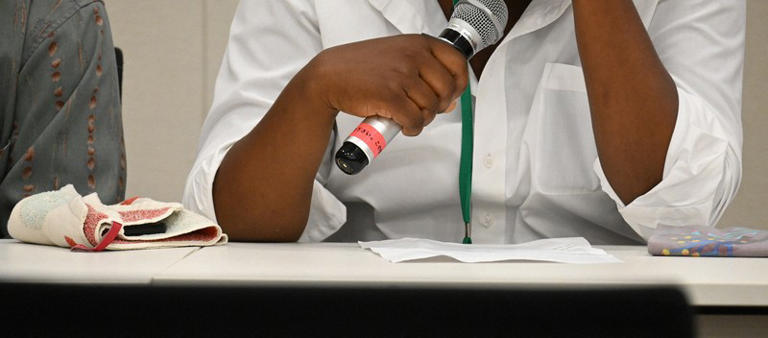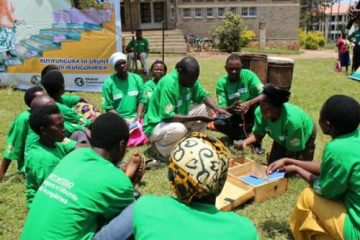As Japan intensifies immigration enforcement ahead of the Upper House elections, African migrants living without legal status are sounding the alarm over a system that, they say, strips them of their dignity, denies them medical care, and reduces them to shadows within society.
Among them is a 30-year-old African mother of four in Yokohama, who has been on “provisional release” since her refugee claim was rejected. She is banned from working, has no access to national health insurance, and survives only through the help of NGOs. One of her two-year-old twins suffers from a congenital illness requiring three surgeries. Only the first was completed before her legal status was revoked, leaving the remaining procedures financially out of reach.

“I want to work. I want my sick child to be treated. I want to raise my children like any other parent in Japan,” she said through tears at a press conference on July 10. Her six-year-old daughter recently asked her, “Mom, who gave you these clothes?” after receiving a donated outfit. “I couldn’t answer her. That moment broke me,” she said.
Her story is emblematic of a deeper, unspoken crisis in Japan: the silencing and marginalization of undocumented African migrants. Though often ignored in official statistics, they form a significant part of the estimated 74,863 people overstaying visas in Japan as of January 2025, according to the Immigration Services Agency. Unlike other over-stayers, many African nationals face compounded barriers due to race, asylum rejection, stateless children, and outright bureaucratic hostility.
Not an Isolated Case: A Pattern of Systemic Neglect and Abuse
African migrants in Japan have long been subjected to a disproportionately harsh immigration system:
2010 – Death of Abubakar Awudu Suraj (Ghana): During a deportation attempt at Narita Airport, Japanese immigration officers forcibly restrained the Ghanaian man using handcuffs, binding tape, and a mouth gag. He died on board the aircraft. A Tokyo court ruled that immigration officials used “illegal restraint methods,” yet no criminal charges were brought. His widow was awarded only limited damages less than ¥5 million (~USD 45,000) for the loss of her husband.
2019 – Forced Deportation Without Appeal: A Tokyo District Court found that immigration authorities acted unconstitutionally by deporting an African asylum seeker on the same day his appeal was denied, effectively denying him his right to judicial review. Human rights lawyers called it a “deliberate miscarriage of justice.”
2022 – Children Born in Japan Left Stateless: NHK and rights groups documented numerous African children born in Japan to undocumented parents who remain without nationality, education, or health access. One Congolese father said his daughter has never seen a doctor because “we simply can’t afford it, and she has no right to insurance.”
Ongoing – African Migrants in Hiding: Testimonies from Nigerian, Ugandan, and Ghanaian migrants in Tokyo and Nagoya detail lives lived in fear. “We hide from strangers. Even police sirens make us panic,” said a Nigerian man who has overstayed for eight years. He earns less than minimum wage doing unregistered labor and fears detention if discovered.
Japan’s Immigration Crackdown Leaves No Room for Dignity
In May, Japan’s Immigration Services Agency launched a “zero illegal overstay plan,” pushing undocumented foreigners to return “voluntarily” or face detention. But for many Africans, returning is not an option due to political instability, war, or fear of persecution.
The system offers no path to regularization, even for long-term residents or those raising children in Japan. Deportation centers have been repeatedly accused of medical neglect, abuse, and prolonged detentions without trial.
“Japan has adopted a policy of quiet expulsion, starve them, isolate them, then hope they give up and leave,” said Kenji Utsunomiya, director of the Anti-Poverty Campaign and a former head of the Japan Federation of Bar Associations. “It’s inhumane, and it violates Japan’s constitutional and international obligations.”
A Political Turning Point?
The upcoming House of Councilors election could determine the future of Japan’s already rigid immigration policy. Several political parties have pledged tighter controls on foreigners, linking over-stayers to social disorder, a narrative that further stigmatizes Africans and other undocumented migrants.
Human rights groups argue that Japan, as the world’s third-largest economy, must do more than criminalize poverty. They point to other democracies that offer pathways to legalization for long-term undocumented residents and their families.
“Japan needs to decide whether it wants to be a democracy that respects rights or a fortress that quietly disposes of people,” said Utsunomiya and added that: “The African community in Japan has been excluded, blamed, and forgotten. This must end.”








